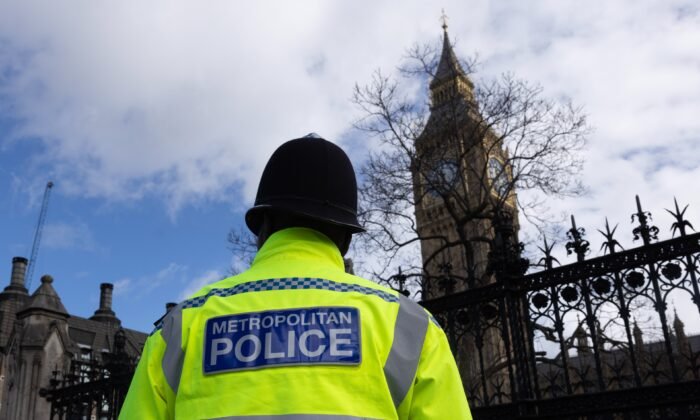Improved Robbery Response Following Police Decision to Stop Responding to Mental Health Calls
The nationwide Right Care, Right Person programme allows police to prioritize attending emergency crimes instead of mental health calls.
The Metropolitan Police in London has seen an improvement in its response to robbery incidents since it no longer automatically responds to emergency mental health calls.
In a statement on Thursday, the Met reported that following the implementation of the Right Care, Right Person programme six months ago, officers are now able to respond to 500 more in-progress robbery calls per month, representing an 18 percent increase.
Additionally, officers are arriving at emergency calls more quickly, with a 6 percent decrease in response time to within 12 minutes since the programme started.
Scotland Yard noted that police are now spending 21 percent more time assisting victims at the scene compared to the same period the previous year.
The Right Care, Right Person initiative is a collaborative effort between police forces, the NHS, social care teams, and other partners to better direct individuals experiencing mental health or other health crises to the appropriate services, rather than relying on police as the first point of contact.
A key outcome of the programme is that fewer officers are diverted from handling other serious crimes, with law enforcement only intervening in health incidents when a crime is in progress or there is an immediate risk to life.
Benefiting London Officers by Reducing Incidents
Scotland Yard reported that the Right Care, Right Person programme has released London officers from over 6,000 incidents per month since its launch, saving 34,000 officer hours. The deployment of officers to such incidents has decreased from 41 percent to 29 percent compared to the same period last year.
Commissioner Sir Mark Rowley expressed satisfaction, stating: “Officers are now better equipped to address the priorities of our communities in the capital. This progress aligns with our commitment to London, and I am pleased with the positive steps we have taken.”
Scotland Yard also noted that police are no longer conducting welfare checks for individuals who miss health appointments or searching for those who leave mental health facilities without authorization.
Efforts to Save Officer Hours
The initiative was spearheaded by former Home Secretary Suella Braverman, who aimed to address a systemic issue.
“From the start, my goal has been to reduce unnecessary burdens that divert police from their core responsibilities of combating crime and ensuring public safety,” she emphasized.
Recent Increase in Shoplifting
Recent data from the Office for National Statistics indicated a record high in shoplifting offenses in England and Wales over the past two decades, with a 37 percent surge between 2022 and 2023.
James Lowman, the CEO of the Association of Convenience Stores, noted that the increase was expected, highlighting that many theft incidents go unreported due to the lengthy reporting process and lack of follow-up by law enforcement.
According to Mr. Lowman, “Thieves are committing thefts regularly without fear of consequences, emphasizing the necessity for all police forces to address theft seriously, as it frequently leads to mistreatment of shop staff.”
In 2023, Co-op documented 336,270 instances of shoplifting, abuse, violence, and antisocial behavior in its food outlets, equivalent to 1,000 cases daily.
Mr. Philp emphasized, “Shoplifting affects businesses nationwide, regardless of size, often involving violence or threats against retail workers.”
He further stated, “This criminal act should not be tolerated under any circumstances. I expect a stringent approach to combat this behavior,” he concluded.





